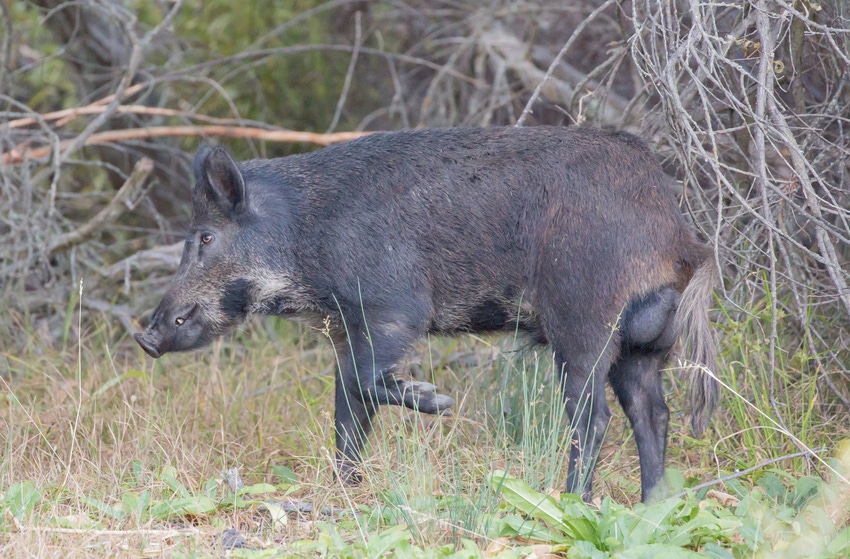
The battle against feral hogs continues in earnest in South Carolina. The good news is Clemson University and the South Carolina Farm Bureau are committed to winning the battle.
At a corn and soybean meeting in Santee Dec. 14, Rick Caldwell, public policy specialist and state legislative coordinator for the South Carolina Farm Bureau, noted that Farm Bureau worked with the House Ways and Means Committee and Senate Finance Committee to identify $75 million in the 2018 farm bill for the Feral Swine Eradication and Control Pilot Project.
The money will be directed to USDA’s Animal and Plant Health Inspection Service to leverage their resources and use their equipment and expertise to help farmers deal with feral hogs on their property. “The USDA APHIs folks will come out and set up an agreement with you, and they will not charge you at all to try to eliminate feral hogs. Eliminate is a tough word; it’s more like a reduction,” Crawford said.
This effort is in addition to the Feral Hog Transportation Bill that was signed into law by South Carolina Gov. Henry McMaster on May 17, 2021, requiring that hogs be properly identified when being transported. The law gives law enforcement the authority to identify and prosecute individuals illegally transporting feral hogs. It requires individuals to provide identification of the hogs and explicitly allows South Carolina Department of Natural Resources to seize and/or destroy feral hogs.
Moreover, the South Carolina Wild Hog Task Force was established to coordinate educational, research and management efforts to reduce the problems associated with wild hogs in South Carolina. The effort is a must because feral hogs are public enemy number one in South Carolina.
Feral hogs have been reported in every county in the state. South Carolina Farm Bureau estimates feral hogs cost South Carolina farmers $115 a year in damages. The hogs will eat and uproot almost any crop, ranging from corn to peanuts to vegetables.
As Crawford notes, elimination is a tough word, but the effort is needed to reduce the harm of these menacing creatures. Every effort to significantly cull the herd must be used.
About the Author(s)
You May Also Like






